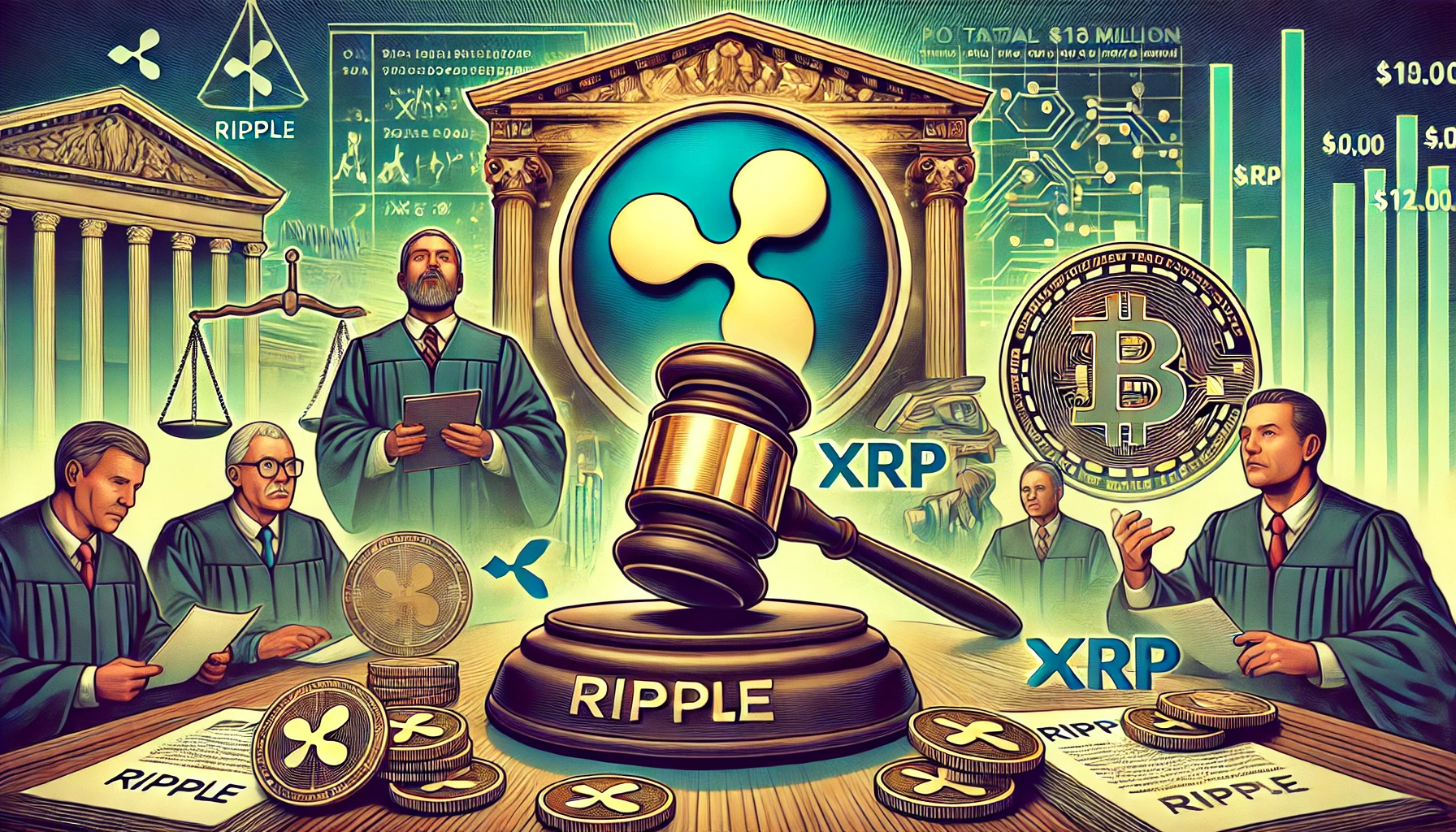XRP Classification: Ripple Lawsuit Update And Potential Commodity Status

Table of Contents
The Ripple Lawsuit: A Detailed Overview
The SEC's case against Ripple centers on the allegation that Ripple conducted an unregistered securities offering through the sale of XRP. The core of the SEC's argument rests on the Howey Test, a legal framework used to determine whether an investment constitutes a security. The SEC claims that XRP sales satisfied the Howey Test criteria: an investment of money in a common enterprise with a reasonable expectation of profits derived from the efforts of others.
Ripple, on the other hand, vehemently denies these allegations. Their defense hinges on the argument that XRP is a decentralized digital asset with utility beyond mere investment, functioning as a bridge currency for cross-border payments within their RippleNet system. They contend that XRP's distribution and functionality don't align with the definition of a security.
Key Legal Arguments:
- SEC's Argument: XRP sales were investment contracts, constituting an unregistered securities offering, violating federal securities laws. They point to programmatic sales and institutional investors as evidence of intent to profit from the efforts of Ripple.
- Ripple's Counterarguments: XRP is a decentralized, functional cryptocurrency with widespread use cases independent of Ripple's efforts. They highlight its utility in facilitating cross-border payments and its open-source nature.
- Expert Testimonies and Legal Precedents: Both sides have presented expert witnesses and cited various legal precedents to support their positions, leading to complex legal arguments and interpretations. The judge's interpretation of these arguments will be crucial in determining the final outcome.
The timeline of the case includes various significant events, from the initial complaint to ongoing discovery and potential motions for summary judgment. This ongoing legal battle is a landmark case, shaping the future of cryptocurrency regulation. Following the progress of this "XRP legal battle" is vital for anyone involved in the digital asset market.
Potential Outcomes and Their Implications for XRP
The Ripple lawsuit's resolution could have several significant outcomes, each carrying substantial implications for XRP:
-
Scenario 1: XRP Classified as a Security: This outcome would likely lead to significant repercussions. Exchanges could delist XRP, restricting trading significantly. This would severely impact XRP’s price and potentially hinder its adoption. Investors holding XRP might face limitations on how they can trade or dispose of their holdings.
-
Scenario 2: XRP Classified as a Commodity: This more favorable outcome for Ripple would subject XRP to less stringent regulatory oversight. Trading would likely continue relatively unimpeded, potentially boosting XRP's price and facilitating wider adoption. The regulatory burden on Ripple would be reduced significantly.
-
Scenario 3: A Nuanced Ruling: The court might issue a more complex ruling, potentially classifying XRP as a security for certain transactions (e.g., institutional sales) but not others (e.g., programmatic sales). This outcome introduces significant ambiguity, creating uncertainty for both investors and exchanges, potentially impacting "XRP price prediction" negatively due to the resulting confusion.
The uncertainty surrounding these scenarios significantly impacts "XRP regulatory uncertainty" and the broader cryptocurrency market.
XRP's Functionality and Its Role in the Ecosystem
Beyond speculation, XRP plays a crucial role within RippleNet, a global network facilitating fast and low-cost cross-border payments. This functionality forms a cornerstone of Ripple's defense, suggesting that XRP functions as a utility token rather than a security. The speed and efficiency of transactions using XRP on RippleNet contribute to its value proposition beyond simple investment. This use case, along with other developing “XRP use cases”, might sway the court's decision, bolstering Ripple's argument. The key argument hinges on whether the primary function of XRP is as a medium of exchange within the RippleNet ecosystem or as an investment vehicle.
The Broader Implications for the Cryptocurrency Market
The XRP case sets a significant precedent for the cryptocurrency industry as a whole. The SEC's approach to XRP will likely influence their enforcement actions against other cryptocurrencies. The outcome will have a considerable impact on "cryptocurrency regulation," specifically how digital assets are classified and regulated in the US.
A ruling classifying XRP as a security could chill innovation within the crypto space, increasing regulatory uncertainty and potentially discouraging investment. Conversely, a ruling in favor of Ripple could create a more favorable environment for innovation and investment. The case’s impact on "SEC crypto enforcement" and broader "crypto market impact" will be profound regardless of the outcome. This is crucial for understanding the broader “digital asset classification” landscape.
Conclusion: The Future of XRP Classification and What to Expect
The Ripple lawsuit's outcome remains uncertain, highlighting the complexities of regulating digital assets. The potential classifications of XRP – security, commodity, or a nuanced ruling – each carry significant implications for XRP's price, adoption, and the broader cryptocurrency market. It’s vital to “stay updated on XRP” developments, as the legal battle unfolds.
The uncertainty underscores the need for investors to conduct thorough research and understand the inherent risks associated with investing in cryptocurrencies, especially those involved in ongoing legal disputes. Remember, “XRP investment risks” are significant in this dynamic environment. Stay informed about "XRP classification updates" and make informed decisions based on your own due diligence. Understanding the evolving situation regarding XRP classification is paramount for navigating this complex legal and financial landscape.

Featured Posts
-
 Understanding The Dragons Den Process From Application To Investment
May 01, 2025
Understanding The Dragons Den Process From Application To Investment
May 01, 2025 -
 Canadas Conservative Leader Defeated In Election
May 01, 2025
Canadas Conservative Leader Defeated In Election
May 01, 2025 -
 March 26th Ace Power Promotions Boxing Seminar
May 01, 2025
March 26th Ace Power Promotions Boxing Seminar
May 01, 2025 -
 Lady Raiders Fall Short Against Cincinnati In 59 56 Defeat
May 01, 2025
Lady Raiders Fall Short Against Cincinnati In 59 56 Defeat
May 01, 2025 -
 Angel Home Opener Spoiled By Injuries And Walks
May 01, 2025
Angel Home Opener Spoiled By Injuries And Walks
May 01, 2025
